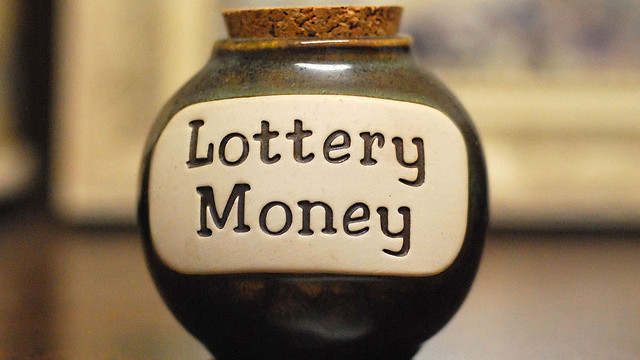Investing in the stock market isn’t completely foolproof. A certain amount of risk is involved, and this leads some people to compare investing to gambling or playing the lottery. But this is a weak, if not completely inaccurate, comparison that prevents a lot of people from building wealth. Here’s how.
Photo by Lisa Brewster
I recently talked about this comparison in a conversation with Laurie Itkin, financial advisor and author. She mentioned that the comparison doesn’t make sense for many reasons, but mainly because of the odds. When you invest properly, and follow some basic rules, the odds are highly in your favour. But that’s not the case with gambling. I asked Itkin to elaborate:
Let’s say you spend $5 a week on lottery tickets for 20 years. That’s $60 a year or $5200 after 20 years. Will you hit the lottery? Perhaps, but your odds of winning are extremely low. The US stock market on average returns about 8% a year. During the past three years it has done much better but there have been a couple of years where it’s done much worse, such as in 2008. But the longer the time horizon, the higher the probability that you will recognise average annual returns of 8%.
The figures vary for Australia, but the principle remains the same. If you’re still sceptical, consider the ratio of people who have built their wealth with the help of investing to those who have built their wealth via lottery scratchers.
This isn’t to say there’s absolutely no risk involved with investing. And that risk, despite the explanation and the odds, might be too much for some. Maybe you don’t want to be at the mercy of the market. But, keep in mind, you’re still at the mercy of inflation. Without investing, that could end up costing you.
Need even more convincing? Check out this lengthy argument from InvestorGuide.

Comments
5 responses to “Investing Your Money Is Not The Same As Gambling”
One of my income streams is from speculative investing and I have often referred to it myself as “educated gambling”
When you gamble you are basically risking some amount of money on a know probability and return so for example if I put $5 on red on a roulette wheel I know my odds (risk) and my return. As an investor however you are making decisions based on a number of other factors and in so doing your are increasing your odds. Imagine the same example of the roulette wheel above but imaging that you where able to take your probability of winning to 51% now that 1% does not sound like much but over thousands of trades and millions of dollars it adds up.
Many avid casino gamblers could easily obtain returns of greater than 8% if, as you put it, gamble properly…
I agree that investing in stocks is different from gambling. But the difference is in the fundamental mechanism of the transaction as opposed to the value of the return.
“But the difference is in the fundamental mechanism of the transaction as opposed to the value of the return.” – I totally agree with you on your comment! As an investment professional, I find it difficult to explain the difference to lay-people.
The most obvious difference surely is what happens when you are unsuccessful; in the case of gambling, it is likely that you lose all your money in a bet that goes awry, yet in the case of shares, notwithstanding a one-in-a-million disaster (Enron, for example), a bad investment will result in only losing a percentage of your investment.
0kensai0 is spot on!
Chile you are correct also when it comes to amateur punters. Although profession gamblers have systems in place that can effectively minimise losses also. Depending how they balance their books, and the significant loyalty rebates they would receive from gambling providers, it is highly unlikely they would lose everything.